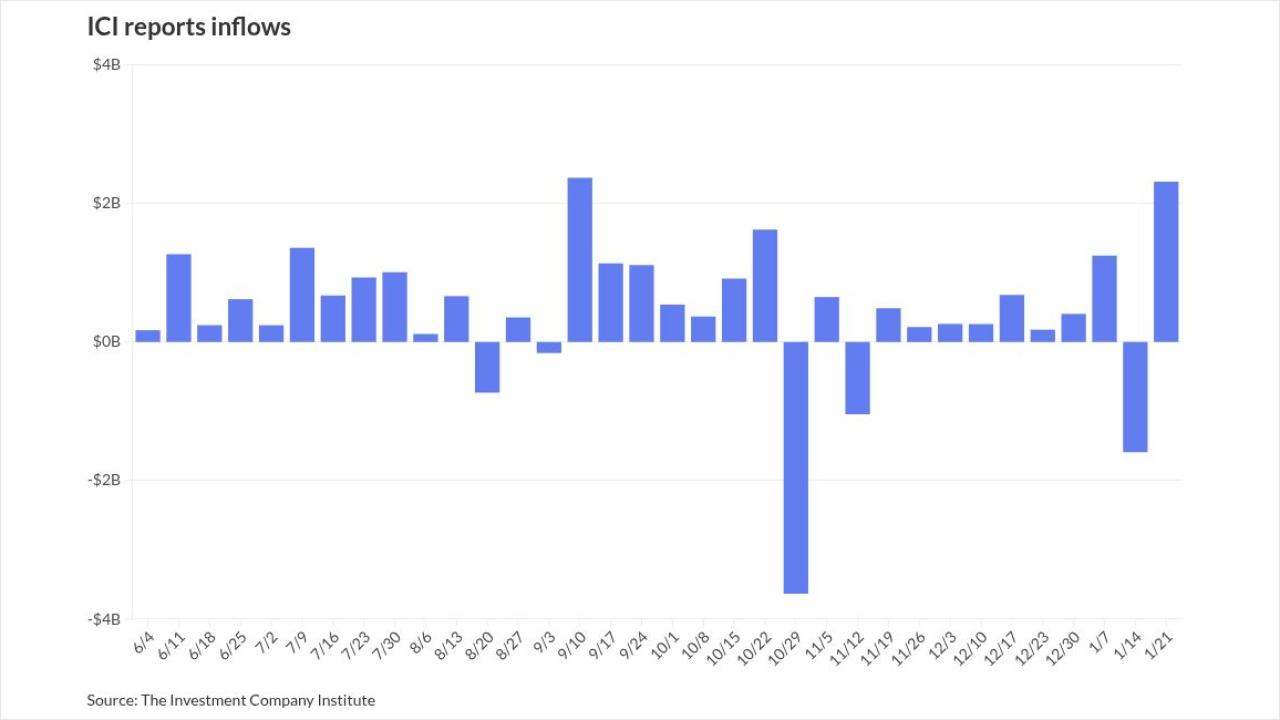Taxable munis are outperforming tax-exempts, U.S. Treasuries and corporate bonds because of a dearth of taxable muni supply and a macroeconomic picture that is favorable for the sector.
Taxable munis have returned 1.48% month to date and 0.29% year-to-date while investment-grade munis have seen 0.44% returns so far in March and 0.05% year-to-date.
USTs are in the black at 1.43% so far this month but returning -1.76% year-to-date while corporate bonds are returning 1.24% in March but -0.46% year-to-date.
So far this year,
Taxable

This can be better understood in macro terms, BofA strategists Yingchen Li and Ian Rogow said in the report released Friday.
"Generally, in an economic downturn or market crisis, both taxable and tax-exempt munis tend to outperform corporates due to the difference in overall credit," they said, noting the regional banking crisis in March 2023 "no doubt reflected that."
The Fed's solution — setting up the Bank Term Funding Program, or BTFP — "provided a boost to the general economy and the financial market, leading to continuous relative underperformance of taxable munis versus corporates up until December," they said.
"Should the surprising strength of the economy for January 2024 prove to be a peaking point of the trend since March 2023, taxable munis should continue to outperform corporates going forward," they said.
Some preliminary data for the month of February (released in March) seem to point in this direction.
Li and Rogow said it is
BofA strategists said investors considering fixed-income investments should choose taxable munis over other options, noting, taxable maturities from six to 11 years were particularly attractive relative to the taxable equivalent yields of tax-exempt munis.
With its 25 basis points of total returns for the week, tax-exempt investment-grade munis underperformed U.S. Treasuries by 84 basis points, corporates by 76 basis points and taxable munis by 124 basis points, BofA noted.
"While exempt IG is still outperforming govies by 60bp and corporates by 32bp for the YTD with its -1bp of total returns, it is underperforming taxable munis by 40bp and muni high yield by 211bp," BofA strategists said.
BofA noted some of the lowest ratios of taxable equivalent yields of tax-exempt munis to taxable munis are found in the six-to-11-year maturity range. For example, seven-year AAA-rated bonds' ratio is 88.1%. For the same maturity but A- rated, the ratio is 87.4%. For the 10-year AAA bonds, the ratio is 87.3%.
In other words, in the six-to-10-year maturity range one can get better interest rates for the same durations and same amount of credit risk if one invests in taxable munis rather than tax-exempts.
These ratios assume investors are taxed at the federal 37% tax bracket. Since many investors fall below this level, the advantages for taxable munis for them would be even greater.
For maturities beyond 10 years, whether investors should choose tax-exempt or taxable munis is less clear, BofA said.
J.P. Morgan noted in a Monday the taxable municipal market spread to corporates has narrowed considerably in 2024. 30-year AA taxable and A-rated taxable munis offer modest spread versus similar structure corporates, they said. "The yield on 30-year AA taxable municipals (5.01%) has rallied since October but remains high relative to most periods over the past 10 years," they said.





